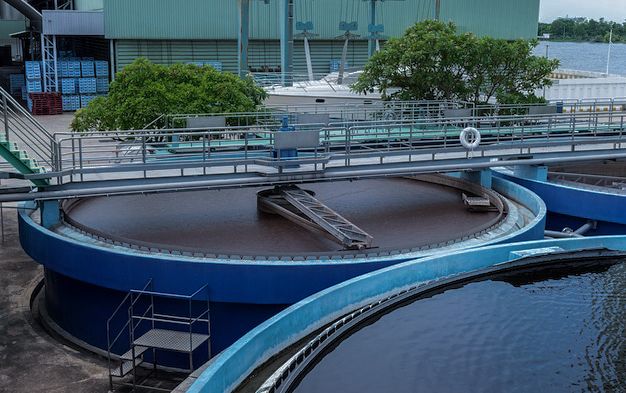To Jean James, Africa’s fast-growing and rapidly urbanizing population and the associated problems of managing wastewater and solid waste are not just challenges but also represent a unique opportunity.
“They create various avenues for the circular economy… an ideal business environment, reduce cases of public health and promote clean water consumption,” said James, a Nairobi-based circular economy expert.
James said the massive investment into waste infrastructure was an opportunity for governments to partner with the private sector to facilitate the financing of what will need to be an enormous undertaking.
According to the UN Environmental Programme, 125 million tonnes of municipal solid waste or MSW was generated in Africa in 2012, with this amount projected to double by 2025. By 2050, however, Africa’s population, according to UN-HABITAT, will also double – resulting in four additional megacities by the same year.
As urbanization continues to accelerate, so does the demand for access to clean water, sanitation and sustainable energy. Increasingly, urban spaces are turning to wastewater treatment solutions and waste-to-energy plants.
Egypt has been a frontrunner in wastewater treatment in Africa, with the country’s Abu Rawash wastewater treatment plant often pointed to as an exemplary example, and one of the largest in the world. The plant treats about 1.6 million cubic meters of wastewater a day, serving more than 6 million people.
As large as it is, however, in 2021 Egypt added an even larger facility – the Bahr El Baqar plant.
Egypt’s North African neighbor Morocco has also made significant progress in this area, constructing more than 400 wastewater treatment projects across the country as of 2021. That number is set to increase further, with Casablanca alone targeting an additional 10 plants.
In East Africa, Tanzania’s Dar es Salaam Water Supply and Sanitation Authority or DAWASA recently awarded the contract to design, build, and operate a new wastewater treatment plant to Metito, a water management solutions company.
The facility, once complete, will generate 16,000 cubic meters of clean water per day for the city’s residents.
Metito will also use conventional activated sludge technology to implement anaerobic digesters to generate biogas.
A Combined Heat and Power (CHP) generation system will be used to generate electricity, a move that will reduce the city’s electric power consumption by almost 40% at ultimate plant capacity.
Similar developments are taking shape in West Africa.
After Ghana inaugurated West Africa’s first 400kW waste-to-energy plant at Gyankobaa, in Ashanti, West African neighbor Ivory Coast has shown increased interest in wastewater treatment plants.
Ivorian authorities recently announced the construction of 20 sewage sludge treatment plants in 17 Ivorian cities – right after the 21st International Congress and Exhibition of the African Water Association or AfWA held in Abidjan.
In South Africa, the Climate Fund Managers or CFM, a private and public sector capital mobilizing agency, recently announced a US$38 million waste-to-energy project in Bronkhorstspruit, South Africa. The project involves the construction of a biogas plant with 9.8 MW of installed power capacity from organic waste.
Smaller countries are making sure they are not left behind. Recently, Namibia, in a renewed charge to invest in this sector, announced an invitation for expressions of interest to build a wastewater treatment facility in the Municipality of Otjiwarongo – a public-private partnership (PPP) model.
James insists the success of these projects are pegged on how well authorities raise and manage the required finances.
“These projects involve destruction, rebuilding and reparation of the system, which largely implicates on the budgetary crunch,” she explained, adding that public-private partnerships would play a vital role in ensuring efficiency and accountability for project implementation.
“The model should be considered from design stage to the maturity of the project,” she said.
bird story agency





